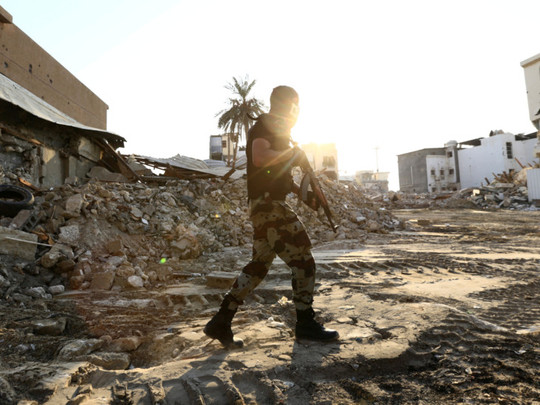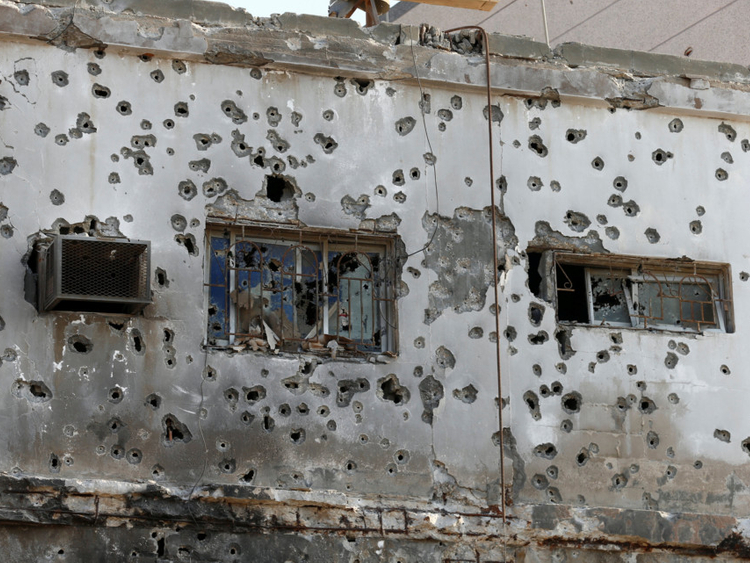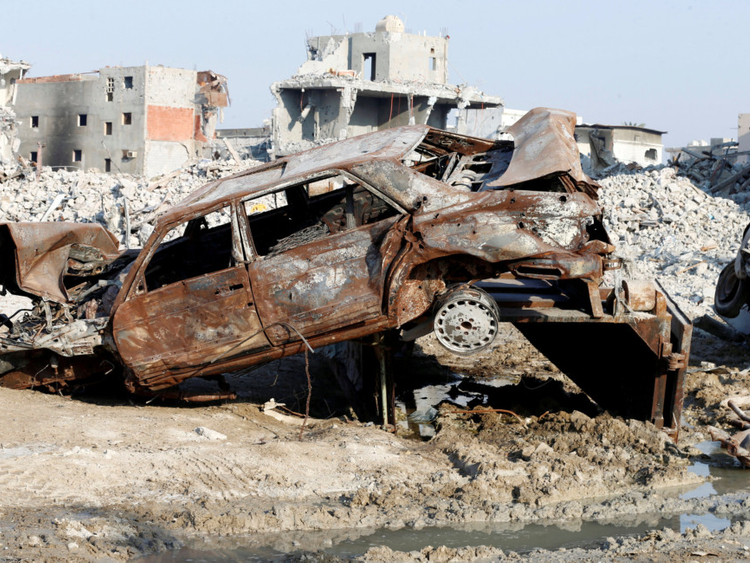
Awamiya, Saudi Arabia: A security campaign against gunmen in eastern Saudi Arabia has been largely successful. Security forces have been trying for three months to flush out gunmen responsible for years of attacks on police in the small town of 30,000 that has been the centre of anti-government protests.
Journalists on a government tour of the town on Wednesday were the first outside witnesses of the damage caused by the fighting. There was no fighting during the tour, although residents reported an explosion and gunfire shortly afterwards.
Rusted-out cars lay half-flattened next to wrecked homes pocked with hundreds of bullet holes. Fighting picked up this month when elite forces joined an operation that began in May to tear down the old quarter, known as Al Musawara, to prevent gunmen using its narrow streets to evade capture.
Casualty figures have not been published, but an interior ministry representative said eight members of a police rapid reaction team and four special forces troops had been killed since the latest campaign began.
Residents said nine civilians had been killed in the violence in the past week and more than 20,000 had been evacuated to villages nearby.
The ministry representative said the old quarter had been empty except for “terrorists” for the past six months, but the security forces had to wait until families left adjacent areas before they could begin their final push.
The authorities say they are clearing the area to build an attractive district of shopping centres, office buildings, green spaces and fountains in place of Al Musawara.
“We informed everyone in the community there would be development stages for several areas in Qatif, starting with Musawara,” said Esam Abdullatef Almulla, the region’s acting mayor.
He dismissed concerns raised by United Nations experts in April that the demolition of the 400-year-old neighbourhood threatened Awamiya’s cultural heritage, saying the majority of the community accepted the project.
“Of course, we didn’t get approval from everyone, but most Qatif and Awamiya residents wanted to see their neighbourhoods developed,” said Almulla.
The government compensated residents who had to leave with more than 800 million riyals ($200 million; Dh734.6 million), he said, and has demolished about 80 out of 488 homes in Musawara.
Footage on social media on Wednesday showed security forces celebrating by linking arms and dancing in a circle, their automatic weapons raised in the air.












